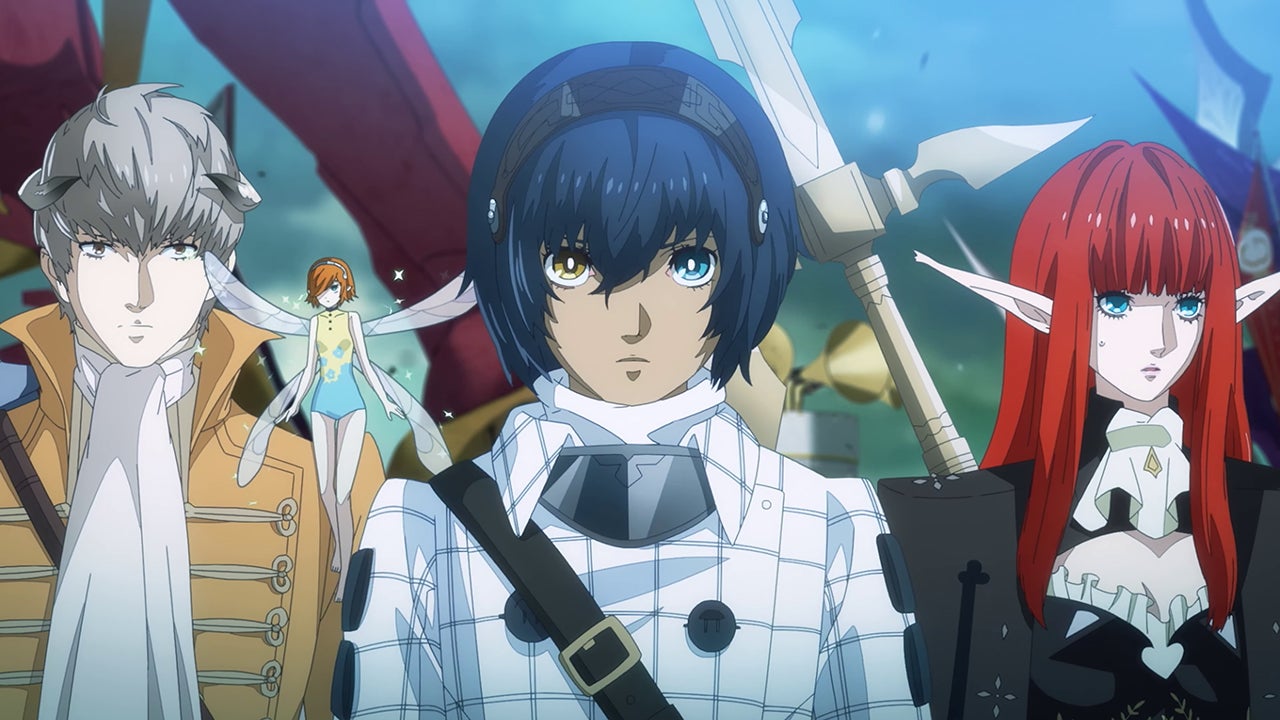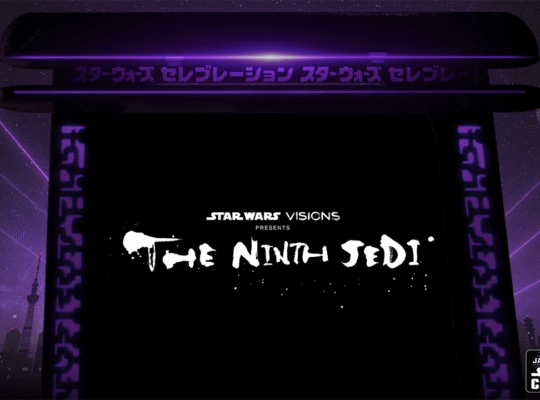What kinds of lessons do we learn from our favorite pieces of fiction? Are they simply a means for escapism and enjoyment, or can they also have a tangible impact on our lives? Having played nearly every RPG from developer Atlus, my answer to that last question is a resounding, “Yes.” Metaphor: ReFantazio ponders these questions in both concrete and abstract ways through the lens of a politically charged fantasy RPG, further proving that there’s real power in the stories games can tell. As familiar as it may feel at times, it also treads new territory with a sense of clarity in its message and an empathy that ripples throughout its harsh world. From its more intimate moments to the grand gestures in its main story, Metaphor makes a loud and clear statement – one that is both relevant to our world today and a timeless examination of the best and worst parts of humanity.
Without much pretense, you’re put into the shoes of a young man in the cold-hearted Kingdom of Euchronia. With the reigning king freshly murdered and his only son (whom you have an unexplained connection with) in a curse-bound coma, a magically-driven election soon kicks off as candidates compete for the open seat on the throne, yourself included. The inner workings of the election process and your role within it changes and evolves as the roughly 80-hour story unfolds, but this setup serves as the compelling drama that propels you through a land plagued with racism, inequality, poverty, religious extremism, and exploitation.
These themes are at the forefront of Metaphor, and they aren’t just set-dressing – even a quick glance at its writing will tell you how it expresses its inherently progressive politics without pulling any punches. As you gain allies, interact with the people who embody these struggles, and travel across the land to earn the support of seemingly disparate societies, the story consistently demonstrates an understanding of the dynamics that give rise to such an ugly world. For a game called Metaphor, it’s not exactly interested in subtext, and in some respects, that’s to its advantage as it makes Atlus’ stance unmistakable.
Metaphor is so very clearly built on the RPG foundations of Shin Megami Tensei and Persona that to think otherwise is to simply deny facts. The Persona framework, in particular, is incredibly effective for exploring its themes and letting you build meaningful connections with the events and people on the ground level. You live life through a daily calendar system – as time marches on and the age of a new king draws nearer, choosing how to spend your segmented afternoons and nights are as vital as making sure you take care of the main objectives that drive the story’s major events. Thus, you find a balance between building bonds, progressing through monster-ridden dungeons, hitting the main quest’s deadlines, and fitting all of that into a tight timeline. Compared to other Atlus joints, it’s done with noticeably less filler, which keeps up a sense of momentum that makes sense in the context of the story.
There’s both a comfort in familiar systems and an excitement in how they are shaken up.
Take the Bond/Follower and the Royal Virtue systems, for example – they are adaptations of Persona’s social links and social stats, but refined. There’s less mystery to how and when you rank up since the conditions for leveling up bonds are made clearer and progress in virtue stats are explicitly shown. It’s one way in which Metaphor delivers already compelling systems more effectively and efficiently. That incentivizes you to see its full message too, as you’ll connect with people from all walks of life who are all victims of an unjust society in some form. And for a story about gaining the trust and support of people across the world, there’s a thematic coherence to taking the time to help uplift those who’ve been left to rot in their misfortune.
Sidequests also fill out the in-between moments nicely, taking you to various optional dungeons across the kingdom either through the guise of hunting for bounties or doing a favor for an NPC. These offer more meat when it comes to combat where tough enemies litter these curated dungeons. You eventually see through the formula of dungeon layouts, which can get a little repetitive, but it gives you enough challenge to chew on and balances out the social aspects of Metaphor well. You’ll also be treated to rewarding incentives, whether it be money, stronger gear, tons of XP to level up, or ranking your social status.
Because you’re running on limited time in the calendar system, taking days out of your schedule to venture off to sidequests and dungeons is more deliberate than a casual trip into Persona 5’s Momentos. It also feeds into that feeling of a globe-trotting adventure perpetuated by the main story, so you’re constantly on the move. The fact that your homebase is a Gauntlet Runner, a stylish steampunk-inspired ship with mechanical legs you use to venture from place to place, is such a smart idea for bringing your traveling band together. It also works as a hub to improve certain bonds, virtues, or combat stats in the time that it takes to get from one location to the next. Metaphor is good about not wasting a moment and constantly giving you something worth working toward, helping all its gameplay systems sensibly feed into each other.
Metaphor wouldn’t be complete without hard-nosed turn-based combat, however. It largely uses the principles of the SMT press-turn system, where both your party and enemies are given turn icons and exploiting elemental weaknesses awards extra actions. There’s both a comfort in these familiar systems and an excitement in the way Metaphor changes things up. That is due in large part to Archetypes, which is effectively a class-based Job system that provides fun tools to fill different roles in your party of four. It offers a level of flexibility not seen in other Atlus RPGs because any party member can specialize in any of the Archetypes while also carrying skills over from others they’ve leveled up – and how you compose your party leads to wild possibilities in combat. As you get into the late-game, you’ll unlock advanced Archetypes that have some truly creative mechanics, especially when you factor in the Synthesis attacks; Not only does each Archetype have its own moveset, various combinations of Archetypes in the party let you access Synthesis attacks that consume multiple turn icons at once to unleash powerful spells for multi-hit moves or provide a major strategic advantage through unique buffs, and these can be the key to defeating the toughest bosses.
Archetypes, Synthesis attacks, and the dynamic of elemental affinities are layered with tried-and-true mechanics that have been either elevated or revised to create something fresh. While many of Metaphor’s hardest battles play out like turn-based puzzles, it’s quite the thrill when you’re able to devise a plan to overcome enemies who have specific quirks or are just flat-out powerful. There’s a satisfaction in “figuring out” the system in that it doesn’t feel like you’re exploiting it, but rather understanding how to take advantage of the tools within its flexible RPG progression.
Several other refinements mitigate the tedious grind that sometimes comes with turn-based RPGs. Weaving in a simple real-time action element mixes things up, letting you smack around an enemy early to then gain the advantage when initiating combat. It also works wonders for mitigating the tedium of churning through fodder since you can hack-and-slash low-level enemies without having to engage in a turn-based battle at all. Metaphor is also generous with the items it gives you to level up Archetypes outside of combat, even rewarding you with said items for using max-level Archetypes so you can bolster your other options. From all aspects of gameplay, whether it be in its combat systems or social sim mechanics, Metaphor is a smart evolution that streamlines the best parts of Atlus’ RPGs.
Even far-fetched fantasy stories can serve as inspiration to make our world a better place.
Also like those that came before it, Metaphor has a striking sense of style. You can see it clearly in the bombastic gothic-inspired menus and UI elements, but that ethos extends to its world and character designs too. Sure, Atlus is playing into the fantasy genre this time, but it is so distinctly of the studio’s aesthetic – one you just don’t see in other games. It’s like taking the famous Garden of Earthly Delights painting by Bosch and putting it in motion while also making it disgustingly deranged. Some of the boss designs are even inspired directly by that work, emblematic of Metaphor’s inventive grotesque style, but that’s also juxtaposed with the beautiful landscapes you visit on your journey and the anime cutscenes that bring critical story moments to life. It may not be the most technically impressive game when you look closely at its individual environments, but it makes a strong case for art direction being more important than raw graphical fidelity.
That unique, fantastical vibe is supported by excellent music from long-time Persona composer Shoji Meguro. It’s a heavily orchestral soundtrack with some wild opera-style vocals that create a sort of gravitas whether you’re stepping into a new city or ambushing an enemy mob for the 100th time. Unlike his previous works, Metaphor is more of a classical score than it is a soundtrack comprised of individual songs on an album. It’s different for sure, and it took some time for it to grow on me, but before I knew it, I’d wake up with the melodies of the battle and town themes stuck in my head, humming along to them as I got deeper into my playthrough. It’s not necessarily the emotional experience I’ve gotten from Meguro’s other soundtracks, but it is a strong and crucial part of Metaphor’s identity.
Metaphor has the message, the gameplay, the style, and the music, but it also has the heart to make all of those core tenets truly sing together. I appreciate that it says all the right things about defying our circumstances and that collective action is what’s going to uplift those who’ve fallen through the cracks. But it has the teeth to show that ideal it is not clean or easy, too. For example, it has an empathetic view of belief systems in general, arguing that while religion as an institution can be exploited by unequivocally bad people, it shouldn’t be conflated with faith itself being the problem – while also understanding that faith alone won’t sustain a just society. There’s a consistent throughline about how those in power prey on the fears and anxieties of the people as well, and it’s electoral storyline explores how manipulative tyrannical figures can be in no uncertain terms.
I was taken aback by the contrast Metaphor creates compared to other RPGs right from its opening moment, where you name yourself – the player – before doing anything else, with the tale of a banned book about a utopia driving the protagonist from there. I was constantly curious about the ways it would break the fourth wall after that, vaguely referring to this utopia as an idealized reflection of our real modern world. But for the characters in Metaphor, that’s their fantasy to strive for.
Metaphor’s party reflects the ever-present theme of diversity being one of humanity’s greatest strengths.
Admittedly, sometimes Metaphor’s writing likes to go in circles, and its penchant for speaking plainly can manifest in repeating itself or relying on cliches. Tucked within that, however, are sharp, poetic lines that show the story knows the material it’s working with. In some respects, Metaphor can be idealistic – but it’s aware of idealism’s limitations, and earns its hopeful moments by building a crew of characters who put in the work to fight the injustices within their kingdom.
For as grand as its story gets, it’s impressive that it still takes the time for camaraderie to blossom among one of the best RPG casts in recent memory. It’s an eclectic party, each of whom have a clear purpose driven by tragedy, hope, and a strong sense of what they must do. Metaphor’s party reflects the ever-present theme of diversity being one of humanity’s greatest strengths. And in the year of our lord 2024, it’s nice to have a powerful story say it outright and demonstrate that belief unapologetically.
In a year that’s been full of personally affecting stories in games – Like A Dragon: Infinite Wealth, Persona 3 Reload and its DLC, Final Fantasy VII Rebirth, 1000xResist, Final Fantasy XIV: Dawntrail, all of which I reviewed – Metaphor still manages to secure a special place in my heart. It doesn’t just resonate in specific moments, it also serves as a reminder that there’s still a bigger world out there, and it’s one that we can change for the better no matter how small our efforts may seem. If its main thesis is to express what fiction can do for our reality, my hope is that it resonates with others who take its message to heart, too.












